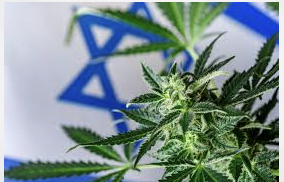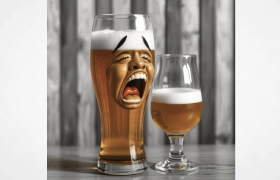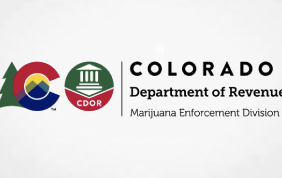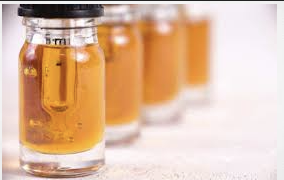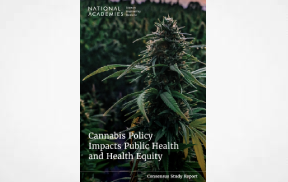Although enormously popular with its citizens, Austria risks missing out on the enormous commercial opportunity of CBD, experts have warned, following a confusing missive from the government that forbids the sale of some cannabis products.
CBD was flying off the shelves in Austria, as elsewhere in Europe, until the government stepped in recently to effectively outlaw the handling of certain cannabinoid products.
It led to a situation where an old-fashioned local bakery gave away space cakes for free (it had planned on selling them for €4.20, of course), due to the decree forbidding their sale.
“It was foreseeable that the Austrian government would take up the fight against CBD, as it had already announced it would do so in its programme,” said Andreas Natterer, partner at Austrian law firm Schoenherr. “Nevertheless, many companies with CBD products in their portfolio were surprised when the Ministry issued a decree stipulating the handling of extracts containing cannabinoids.”
A decree is an internal administrative rule issued by a higher authority to lower authorities, and in this case, Austria’s authorities cited a European Union regulation, which applies directly across the bloc.
According to the decree: “Extracts containing cannabinoids which are placed on the market as such or in food should therefore generally be considered as novel foods”, under European Union regulation.
Only authorised novel foods included in the Union list may be sold or used in foods in accordance with the conditions and labelling requirements laid down in the list. No such authorisation is currently granted in Austria, and so the Ministry said CBD should be banned from foodstuffs and cosmetics.
The initial reading was an outright ban of foods and oils that contained CBD oil, this was not to be the case.
“Unfortunately, the Ministry’s assessment is poorly expressed,” said Natterer. “The Ministry is essentially misusing the Novel Food Regulation to achieve its announced goals.”
The difference between Regulations and Directives at EU level is the former applies in a blanket manner, and states must adhere, whereas the latter give governments wiggle room to interpret how they wish.
Austria is therefore not entitled to interpret EU law, and although the decree refers to “clarifications at the European level” as the basis for the legal opinion, this has not officially happened as yet, lawyers said.
The EU’s “novel food” list states that extracts from the cannabis plant where the CBD content is higher than the CBD content in the source, such as the Cannabis sativa L plant, are novel foods.
However, neither that catalogue nor any legislative act of the European Union defines how high the “normal” CBD content is in a cannabis plant, for purposes of deciding if it is legal or not. By law, industrial hemp must not contain more than 0.3 percent THC after flowering.
Foods containing hemp, in which CBD is naturally contained, such as hemp teas, hemp seeds, oil, flour, and drinks such as hemp beer or hemp lemonades, are not subject to the Novel Food Regulation, and are freely on sale elsewhere in the EU.
“CBD in its pure form should probably be considered a novel food unless the food business operator can demonstrate that the CBD extract was used as food before 15 May 1997,” said Natterer. “Then again, not all ingredients containing CDB are novel. The decree conceals this crucial differentiation and mentions a general prohibition, which cannot even be given due to the legal situation.”
It would have been desirable to clarify the legal situation and provide guidance to all parties involved in the CBD business, but the decree has not achieved this objective, said Natterer.
“On the contrary, confusion prevails.”
To go ahead with an absolute ban would devastate a burgeoning domestic economy, added Thomas Kulnigg, partner at Schoenherr.
“The Austrian market leader in the sale of hemp plants, a multimillion Euro business by the name of Flowery Field, has already abandoned the sinking ship and relocated its operations to Italy,” he said.
Several notable young Austrian entrepreneurs have entered the European CBD market with their start-ups, including CBDoken, which uses blockchain technology to trade CBD bottles.
“It would undeniably be a heavy blow if a CBD ban were implemented in Austria, since substantial revenues are being generated worldwide by the trade of this substance,” said Kulnigg. In the US, CBD trading is already a billion-dollar industry and there is immense growth potential. In view of this, it is possible to imagine the impact that a ban on CBDs could have.”
He said he hoped it would not get as far as a total embargo. “There is nothing else but to trust that the Austrian government will recognise the potential of this substance, if not for the human body, then at least for the economy,” he said.
To further complicate matters, the authority responsible for pharmaceutical regulation, the Austrian Federal Office for Safety in Health Care explicitly does not regard CBD products as functional drugs and does not recognise it as a medicinal product.
However, lawyers say there is a risk that those CBD products which give the impression of being a medicinal product will be classified as such and thus subject to authorisation.
While production of cannabis for medical uses is theoretically allowed, the sale of the natural remedy itself is prohibited under Austrian drug laws.
Austria does allow the synthetical Cannabis pharmaceuticals such as Dronabinol (containing THC) and Sativex (containing Cannabidiol CBD) to be sold to individuals with prescriptions from a licensed physician.
it illegal to grow cannabis with the intent to produce the psychoactive cannabinoid THC, Austrians can purchase cannabis seeds and seedlings legally. According to law, only THC is prohibited, none of the other hundreds of cannabinoids.
Despite a forced break in 1958, production of industrial hemp for fibres, hemp seed oil and all other non-psychoactive parts of the hemp plant resumed in 1995, and one region in northern Austria, Hanfthal (Hemp Valley) revived its 800 years old tradition of hemp production.
According to official government data, more than 20 percent of Austria’s 8.77 million population have used cannabis in their lifetime and 12.5 percent are estimated to smoke it regularly/occasionally.
Government data estimates that about 40 percent of individuals between 15 and 25 years consume cannabis, and that consumption starts among adolescents at 15 years of age on average.



